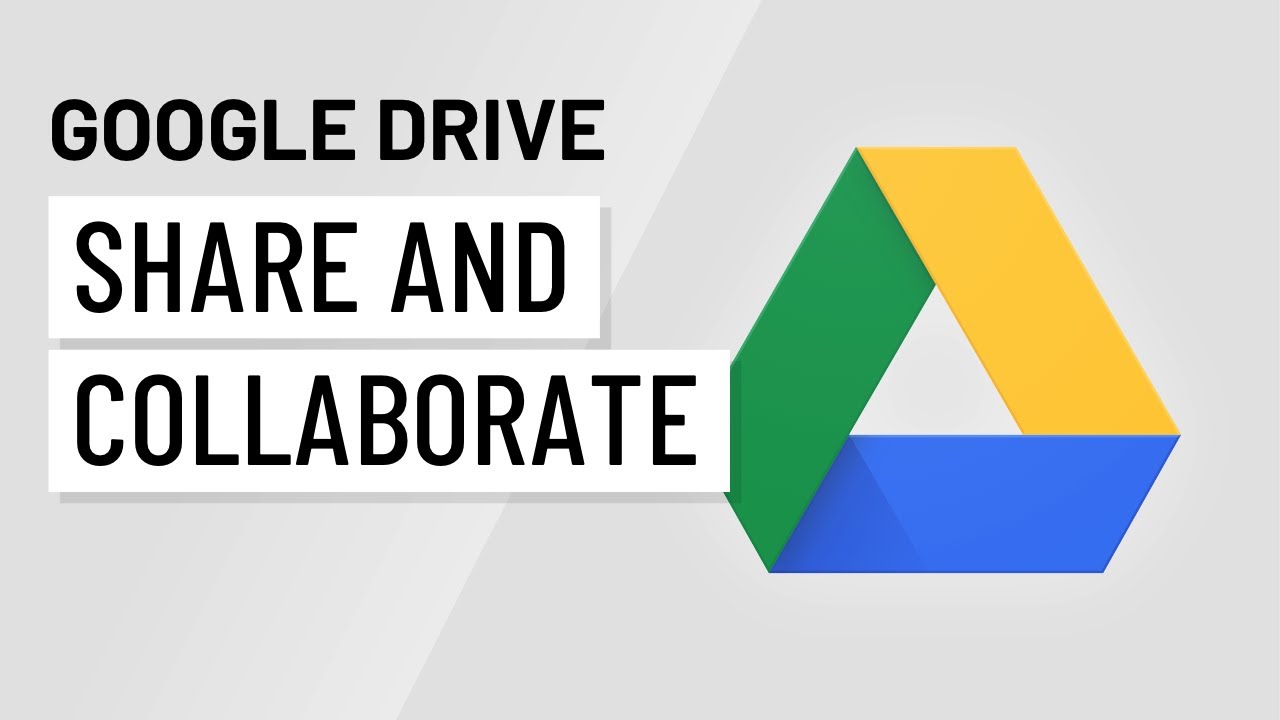
Introduction
Google Drive stands as a beacon of collaborative innovation in the digital realm, offering users the ability to share and collaborate on files seamlessly. Whether you’re working on a team project, facilitating feedback on a document, or conducting a survey, Google Drive provides a versatile platform for real-time collaboration. This comprehensive guide explores the intricacies of sharing and collaborating on Google Drive files, unraveling the features, best practices, and advanced techniques that empower users to harness the full potential of collaborative work in the cloud.
Understanding the Foundation: Sharing Files in Google Drive
Step 1: Accessing Google Drive
Before diving into sharing and collaboration features, access Google Drive by logging in to your Google account and navigating to Google Drive or using the Google Apps menu.
Step 2: Navigating the Interface
The Google Drive interface consists of “My Drive” for personal storage, “Shared Drives” for collaborative team spaces, and folders and files that make up your digital workspace. The “Share” button is a key element in initiating collaboration.
Fundamental Sharing Techniques
1. Sharing Individual Files
- Right-click on the file you want to share.
- Select “Share.”
2. Setting Access Levels
Control who can view, comment, or edit the file by adjusting access levels:
- Click on the “Share” button.
- Enter email addresses or select from your contacts.
- Choose access levels: Viewer, Commenter, or Editor.
3. Sharing with a Link
Generate a shareable link to the file for broader access:
- Click on the “Copy link” option.
- Share the link via email, messaging, or other channels.
4. Sharing Folders
Share entire folders for streamlined collaboration:
- Right-click on the folder.
- Select “Share” and follow the same steps as sharing individual files.
5. Collaborative Editing in Real-Time
Google Drive allows multiple users to edit a document simultaneously:
- Open the file for editing.
- Collaborators can join and make changes in real-time.
Advanced Collaboration Techniques
1. Commenting and Suggesting Edits
Enhance collaboration by enabling commenting or suggesting modes:
- Click on the “Comment” or “Suggest” button.
- Leave comments or suggest edits directly in the document.
2. Notifying Collaborators
Keep collaborators informed by adding comments with “+” and their email address:
- Type “+” followed by the email address.
- Collaborators receive notifications about the comment.
3. Viewing File Activity
Monitor file activity and changes made by collaborators:
- Right-click on the file.
- Select “Activity.”
4. Customizing Notifications
Adjust notification settings to receive email updates:
- Click on the gear icon.
- Select “Settings.”
- Choose notification preferences.
5. Accessing Revision History
Review and revert to previous versions of a file:
- Right-click on the file.
- Select “Version history” and choose “See version history.”
Best Practices for Efficient Collaboration
1. Clear File Naming Conventions
Establish clear file naming conventions to enhance organization and searchability.
2. Utilizing Shared Drives
Leverage Shared Drives for team collaboration:
- Click on “+ New” and select “Shared drive.”
- Collaborate on files within the Shared Drive.
3. Organizing Shared Files
Organize shared files into folders for better structure:
- Create folders within Shared Drives.
- Share entire folders for collective access.
4. Setting Ownership and Transfer
Set file ownership or transfer ownership to another collaborator:
- Right-click on the file.
- Select “Share.”
- Click on “Advanced” and transfer ownership if needed.
5. Embedding Google Drive Files
Embed Google Drive files directly into websites or documents:
- Click on the file.
- Select “Open with” and choose the appropriate application.
- Copy the embed code.
Advanced Tips for Seamless Collaboration
1. Integrating with Google Workspace
Explore Google Workspace integrations for enhanced collaboration:
- Click on “+ New” and select “Connect more apps.”
2. Utilizing Google Forms for Data Collection
Leverage Google Forms for collaborative data collection:
- Create a form within Google Forms.
- Share the form link with collaborators.
3. Automating Workflows with Google Apps Script
For advanced users, automate workflows with Google Apps Script:
- Click on “+ New” and select “More” > “Google Apps Script.”
- Develop scripts to automate tasks.
Ensuring Security and Privacy
1. Reviewing Permissions
Regularly review file permissions to ensure data security:
- Right-click on the file.
- Select “Share.”
- Review and modify permissions as needed.
2. Setting Expiry Dates for Links
Enhance privacy by setting expiry dates for shared links:
- Click on the “Copy link” option.
- Configure link settings, including expiration.
3. Utilizing Two-Factor Authentication
Strengthen account security by enabling two-factor authentication:
- Click on the gear icon.
- Select “View account” and navigate to the “Security” section.
Collaborating on Google Drive Mobile App
Extend collaboration to mobile devices with the Google Drive mobile app:
- Download the Google Drive app from the app store.
- Access and edit files on the go.
Conclusion
Google Drive’s sharing and collaboration features revolutionize the way individuals and teams work together on digital projects. From fundamental sharing techniques to advanced collaboration strategies and security measures, this comprehensive guide equips users with the knowledge to navigate the collaborative landscape of Google Drive with confidence. As you embark on your collaborative journey, remember that effective collaboration is not just about sharing files but about unlocking the collective potential of ideas and innovation. Welcome to a realm where collaboration knows no bounds – welcome to the future of work on Google Drive.